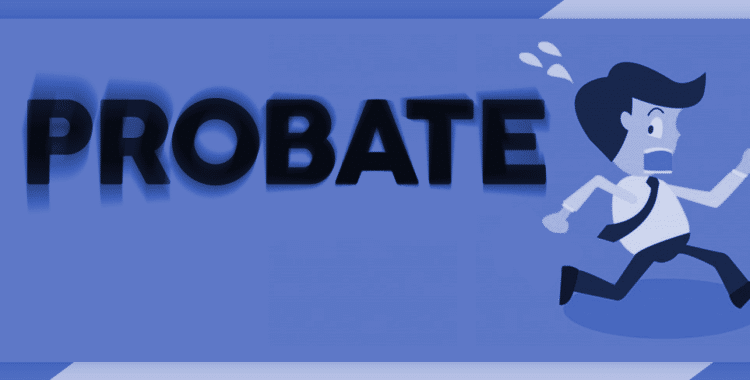Avoiding Probate Application in Alberta
Start Here
Before you read this article, it may be helpful to review our article “When is Probate Necessary?” to get an idea of when a probate application is required. Probate avoidance from an Estate Planning perspective, i.e., when you’re still alive, deserves an article of its own, and there are many precautions that need to be taken into consideration when doing any sort of probate avoidance as part of an Estate plan.
This article, however, addresses whether an Executor can avoid probating a deceased’s Estate from an Estate Administration perspective.
First Things First: What is Probate?
Probate is often used as a catch-all phrase to refer to various aspects of the Estate Administration process. Estate Administration is the process of gathering and distributing a deceased’s assets, and satisfying all obligations and debts of the Estate. Often, the Executor needs to obtain a Grant of Probate from the courts before distributing the Estate, even if the deceased left a valid Will.
A Grant of Probate is a formal court document, issued by the Surrogate Division of the Court of Queen’s Bench in Alberta, which confirms or validates the Executor’s authority to distribute the deceased’s Estate. It also confirms the validity and legitimacy of the deceased’s Last Will.
If the deceased neglected to leave a valid Will, an application for a Grant of Administration, which is similar to a Grant of Probate, is nearly always required.
How Can Probate Avoidance Affect Me?
A commonly held misconception about Estate planning is that a valid Will negates the need for a probate application. While it’s extremely important to have a valid, up-to-date Will in place, and while leaving a Will certainly simplifies the probate process, more often than not, a probate application is necessary, regardless of whether or not the deceased left a valid Will.
There are, however, some exceptions to the general requirement that an Executor must obtain a Grant of Probate, which are addressed below.
When Can Probate Be Avoided in Alberta?
- Probate is most commonly avoidable between spouses. If spouse A is deceased, and spouse B is the Estate’s Executor, spouse B can typically avoid probate if all assets are held jointly. For example, if spouse A and spouse B were joint tenant owners of the couple’s only home, held all bank accounts jointly, registered their vehicles in joint names, and if the deceased spouse named the surviving spouse as their beneficiary of all other assets where applicable, such as RRSPs, TFSAs, non-registered investment accounts, and life insurance policies, a Grant of Probate is likely unnecessary; Probate may also be avoidable where the deceased left a valid Will, but no surviving spouse, provided that the deceased named a beneficiary on each individual asset, account, and life insurance policy, and named someone as a joint tenant owner of any real estate or motor vehicle;
- In limited circumstances, where the Estate is small or there are only one or two assets that would typically require probate, probate may be avoided with some creativity on the part of the Executor. We see this type of probate avoidance succeed occasionally in circumstances where, for example, a deceased individual left a valid Will appointing their adult child as the sole Executor and beneficiary of their Estate. In such instances, if the deceased’s only asset was a single bank account with a balance of, say, $8,000.00, the deceased’s financial institution may, discretionally, release the $8,000.00 to the Executor upon review of the deceased’s original Will and upon verification of the Executor’s identity. If you’re an Executor, it’s important to remember that this is a “shot-in-the-dark” form of probate avoidance, is at the discretion of the deceased’s financial institution, and isn’t always successful, or even ideal. Additionally, if you’re an Executor, it’s important to never misrepresent your relationship to the deceased when dealing with a financial institution, or anyone else.
- Lastly, probate can be avoided where it’s impractical. Occasionally, the cost and effort of a probate application outweigh the value of the Estate, and, as such, the Executor and beneficiaries agree not to proceed with probate. For example, a deceased may have died penniless, with no debts and only a few assets, perhaps living paycheque to paycheque in a rented apartment. In such an example, the deceased’s only asset may be a modest vehicle worth $2,000.00 and some clothing and personal effects. In this type of situation, it’s likely inefficient and cost-ineffective for an Executor to obtain a Grant of Probate in order to transfer the vehicle registration to the Estate so that the vehicle can be sold and the proceeds distributed.
We Can Help You Determine Whether Probate is Avoidable
The scenarios described above are only a sampling of the situations in which an Executor may be able to avoid applying for a Grant of Probate. If you’re an Executor who’s hoping to avoid probate, or if you’re simply unsure of what the probate process entails and where you should begin, seeking the advice of a qualified Wills & Estates lawyer is an ideal place to start.
The Wills & Estates lawyers at West Legal offer free-of-charge, no-obligation consultations to Executors and potential Executors. During our consultation, we’ll help you determine whether probate is necessary for your circumstances, and we’ll guide you towards your next steps. Contact us today, and we’ll book you in for your free probate consultation!

